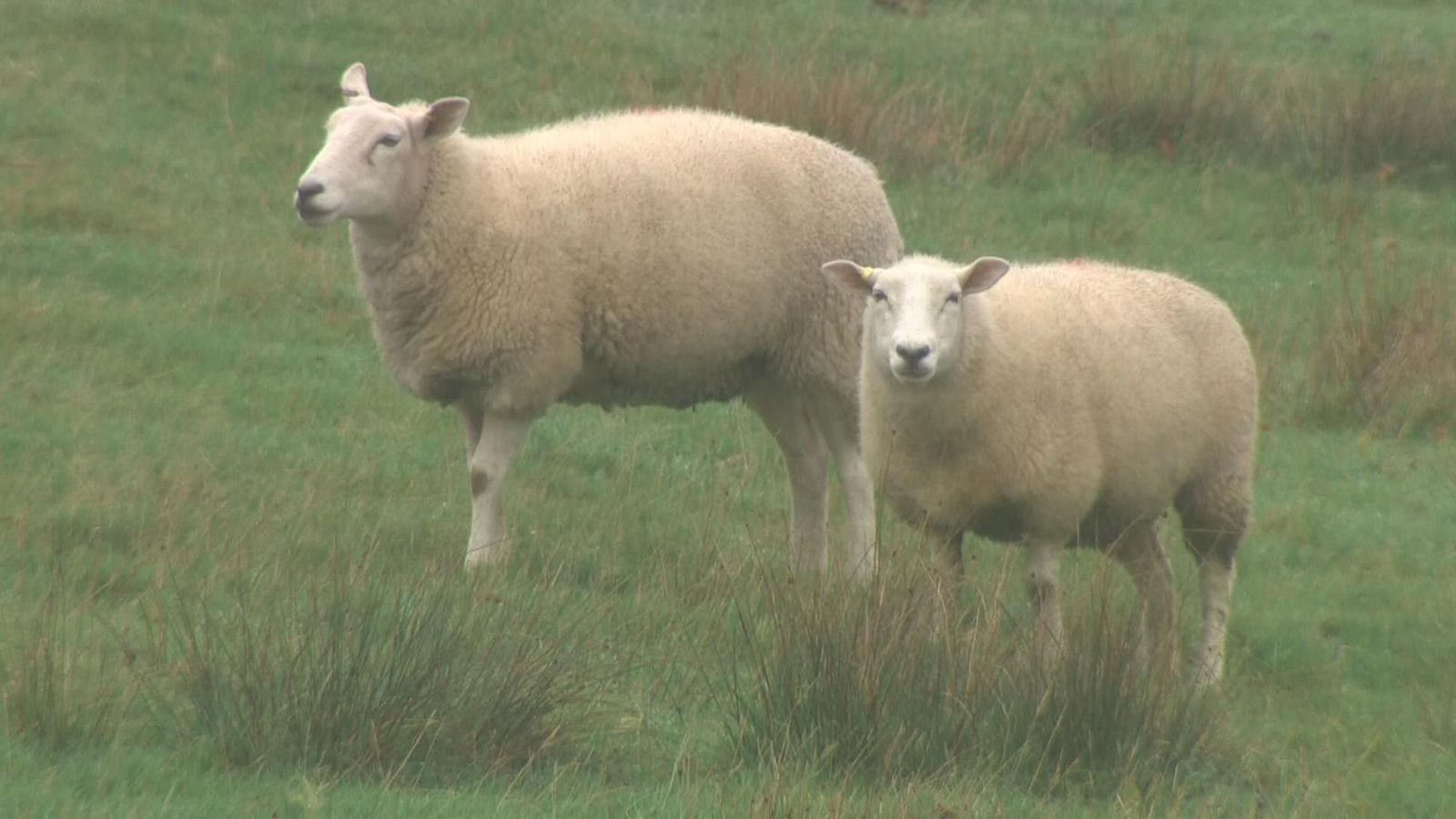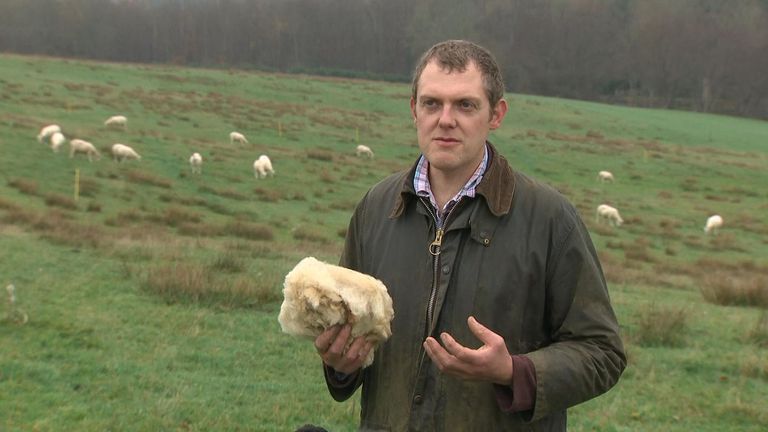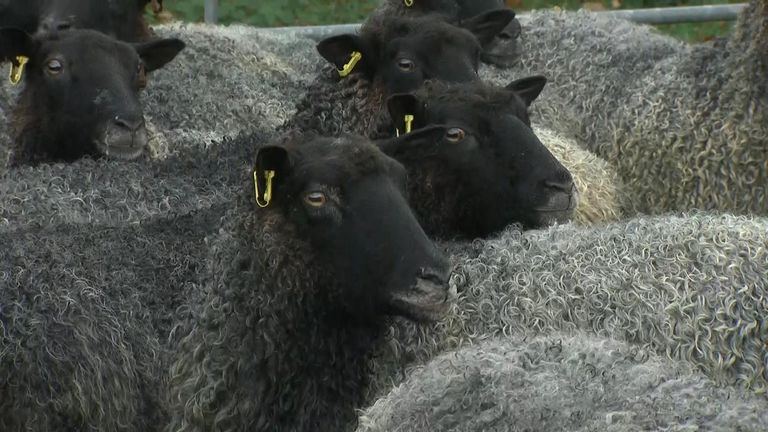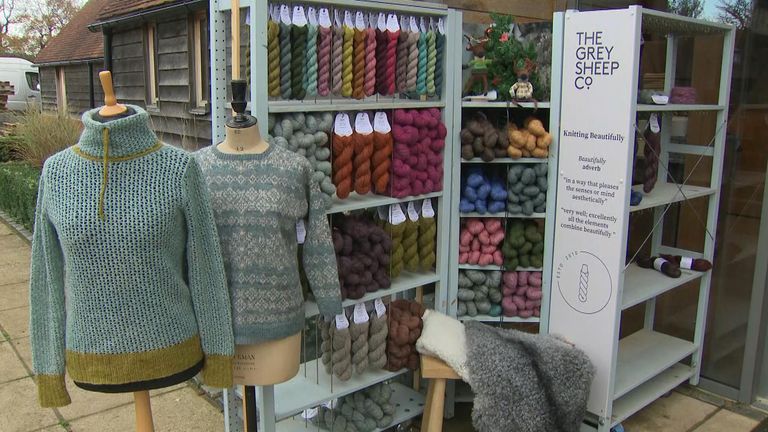Farmers have been left struggling to cover costs as wool prices have plummeted during the coronavirus pandemic.
Shepherd Stuart Fletcher was forced to throw his harvest onto compost after the price of wool fell by 50%.
Mr Fletcher, who runs a farm in East Sussex, said it would cost more in fuel to transport the wool to the depot than he would gain by selling the fleeces.
“The financial implications were so bad that I just put it on the mud heap,” he said.
It appears to be a growing problem across the world.
“It’s not just me that’s doing this, or farmers in the UK,” Mr Fletcher said.
“I’ve been approached by farmers in South Africa and Canada that just don’t know what to do with their wool. It’s happening everywhere.”
Most farmers sell their fleeces through British Wool, formerly known as the British Wool Marketing Board.
“We understand the frustration that farmers are feeling this year. The cost of shearing sheep can be anything from £1.25 to £1.50 per animal,” said Andrew Hogley, acting chief executive of British Wool.
“The value of wool is absolutely not covering those costs at this time. I would still encourage farmers to send their wool in. We want to ensure there’s a market for their product when the crisis is over.”
British Wool said their industry is heavily reliant on the revival of the hospitality sector.
“We’re really dependent on sectors of the economy that need to recover, such as hospitality: restaurants, hotels, airlines,” Mr Hogley said.
“The impact of the pandemic has not left them in a position to be refurbishing their premises at the current time, and a lot of British wool goes into contract carpets.”
Bucking the trend of selling fleeces, The Grey Sheep Co in Hampshire transform their wool into colourful British knitting yarn, but they believe the industry is shrinking rapidly.
“Since the decline of wool, the industry that supports the production such as dye houses or combing houses have all gone out of business,” said founder Emma Boyles.
“It’s been a challenging year. We normally promote products at shows in Europe – but this has been impossible.
“The industry is changing and we have to become entrepreneurs rather than just expecting that what we produce will have a market.”



